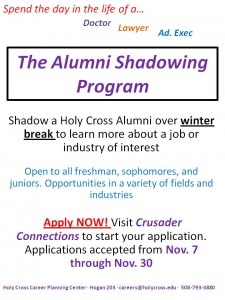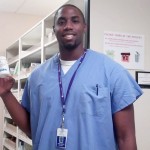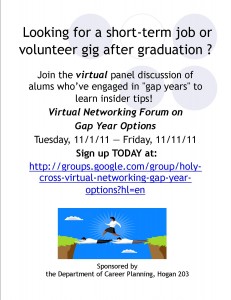This week hear from Alana DiPesa ’09 and her career development from JVC to graduate school!
. . . . . . . . . .

I graduated from Holy Cross in 2009 and did what any graduate without definite post-graduate goals would do in an economic recession, volunteer!
I had always wanted to do a year of service after graduation but the lack of job prospects made it all the more appealing once my senior year rolled around. I applied to a couple of international programs and then on a whim applied to the national Jesuit Volunteer Corps. I felt like everyone who volunteered from Holy Cross did JVC, and I wasn’t sure I wanted to follow that path, but the recruiters talked a lot about the JVC community that I would be a part of long after my year of service was over and that appealed to me because it sounded a lot like the Holy Cross community that I had come to love.
I eventually chose JVC over the international programs and was placed at a Sanctuary for Families, a nonprofit working to combat domestic violence in Brooklyn, NY. I loved the year I volunteered for Sanctuary as a paralegal in their immigration department; I became so passionate about the undocumented clients we served and felt as though I had found my life’s work. When Spring engulfed New York I realized my time at Sanctuary would have to end; I was not only saddened to leave the job I had come to love, I was terrified about what I would do next and how it would ever compare.
The first thing I did to begin my job hunt was talk to all of my colleagues and supervisors with
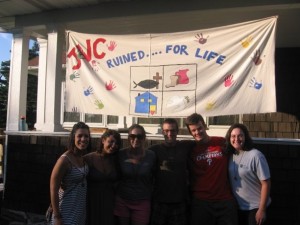
whom I had built strong relationships. I told them what kind of work I was interested in, gave them a copy of my resume, and asked that they send it along to any of their contacts who might be hiring. I got a lot of positive responses and a couple of interviews from this alone.
In the meantime, though, I had also made my interest in staying at Sanctuary clear to my bosses and I wound up getting hired on as a Family Reunification Coordinator after my year of service was completed. This new role was a promotion from the work I had been doing as a paralegal and a huge challenge as I began running the reunification program almost entirely on my own. I was responsible for assisting the children of our clients who were still living abroad apply for visas, and upon approval, enter the U.S.
As Family Reunification Coordinator I was privy to some of the most intimate interactions that families had; I witnessed the joy upon initial reunification, the fear of inadequacy that mothers who had been without their children for as much as 10 years felt, the disappointment that these children experienced when they realized that their vision of America was a far cry from the life they would be living, and the inevitable arguments that ensued. It was this exposure to family dynamics that convinced me of what I wanted to do next: I was going to follow in my mother’s footsteps and become a child and family therapist.
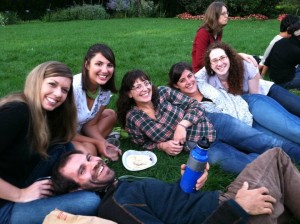
I had come to love my work schedule so much that I was not thrilled about becoming a full-time student again, but I knew that it was the only way to get to where I wanted to be. I started researching clinical Social Work programs and decided on the Smith School for Social Work because their program would allow me to work at an internship for the majority of the year and only be in classes during the summers. I completed my first two semesters of classes this past summer and now I’m working at the Yale Child Study Center in New Haven, CT providing therapy to children and families affected by HIV/AIDS.
I’ve had a taste of everything since graduating from Holy Cross: volunteering, working full-time, and now being back in graduate school. I didn’t plan for my post-graduate years to work out this way, but I can’t imagine it haven’t gone any smoother.
I finally understand what the career counselors were trying to get through to me when I was an undergrad: networking is everything! If I hadn’t made the contacts that I did through my year of service as a Jesuit Volunteer I wouldn’t have landed a dream job afterward and I also wouldn’t have heard about the Smith Social Work program nor had people to write references for me. Making connections and building rapport with new people that you meet is so much more important than I ever realized while I was at Holy Cross.
Now, although I’m still making new connections at the Yale Child Study Center, I’m also maintaining my former connections through email updates, coffee dates, and cards around the holidays; you never know when you might want to call up that person you met way back when and ask for a favor, so it’s worth it to make sure they remember you and keep them in your network!
. . . . . . . . . . .
Did this story resonate with you?
Inspired to do service work after graduation? Check out opportunities in Career Planning or with the Chaplains’ Office.




